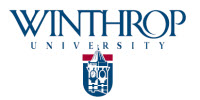Below is a summary of the abstract you submitted. Presenting author(s) is shown in bold.
If any changes need to be made, you can modify the abstract or change the authors.
You can also download a .docx version of this abstract.
If there are any problems, please email Dan at dar78@pitt.edu and he'll take care of them!
This abstract was last modified on March 16, 2021 at 10:45 a.m..

During the spring semester of the one-year-long HHMI SEA-PHAGES experience, we annotated the sequenced genomes of two novel Mycobacterium smegmatis bacteriophages, Allegro and Moostard. Allegro is a member of the Mycobacterium Cluster B and a member of sub-cluster B2. Allegro’s genome is 67,439 bp in length and has approximately 92 predicted genes. Moostard is a member of Mycobacterium Cluster L and a member of sub-cluster L3. Its genome is 69,480 bp in length and has approximately 108 predicted genes and 10 tRNAs. Using DNA Master, Phamerator, and Starterator, along with homology comparisons to databases at HHPred and NCBI, the putative open reading frames were assessed for start site codons and function. Multiple students called each gene allowing for independent assessment of the reading frames. The data from all students was merged and assessed. Our preliminary results indicate that Moostard encoded for integrase proteins which suggest a temperate lifestyle. Allegro, a lytic bacteriophage, did not contain an integrase protein but did encode for a putative immunity suppressor protein. The comparative analysis of phage genomes helps expand our understanding of the genomic diversity of bacteriophages found in this region of South Carolina and successfully introduces a genuine research experience to students in their first year of undergraduate studies at Winthrop University.

